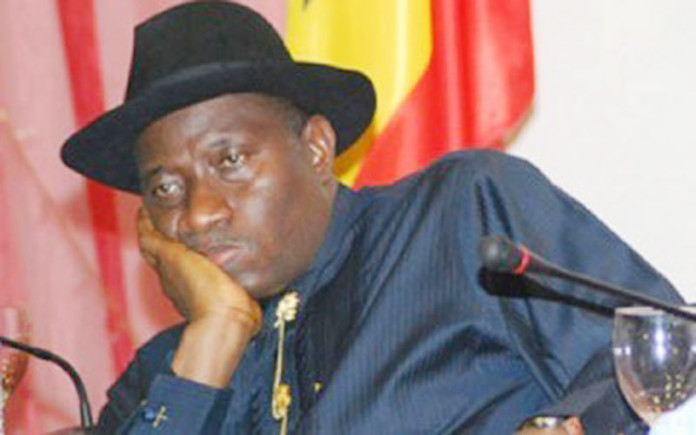Due to internal wrangling, it lost the 2015 Presidential election to All Progressives Congress (APC). Even now, the Peoples Democratic Party (PDP) has failed to gather what remains of its battered self to play opposition politics, writes Assistant Politics Editor, DANIEL KANU
Since the loss of power by the Peoples Democratic Party (PDP) to the All Progressives Congress (APC), in 2015 presidential election, there has been steady decline in the fortunes of opposition politics in the country.
Unlike the situation in the last dispensation when the President Goodluck Jonathan administration faced stiff opposition from the APC, the PDP that is supposed to be that role, has curiously lost steam. Rather, the party is encumbered with internal crises arising from leadership tussle.
The rot sets in
At first, the PDP had showed signs of adjusting to its new role as an opposition party. One of the first major gatherings of the party faithful after it lost the presidential election was a retreat in Port Harcourt, Rivers State, where it discussed its future as an opposition party.
But since after the retreat, no action followed.
Initially, the voice of the opposition was that of few elements of the last regime that could be counted with the fingers. They included the former spokesperson of the party, Olisa Metuh; former Minister of Aviation, Femi Fani-Kayode; former presidential aide, Doyin Okupe; and Ekiti State Governor, Ayodele Fayose.
But even as they seemed to play the role, it was obvious that their reactions to statements from the ruling APC or in some cases personal attacks on President Muhammadu Buhari, sometimes, sounded uncoordinated.
With what increasingly appeared their routine engagements on issues that did not actually matter, it did not take long for perceptive Nigerians to conclude that the party lacked what was required to play robust opposition politics.
And by what seemed mere coincidence or well-crafted strategy on the part of the Muhammadu Buhari administration, most of the notable voices speaking for PDP, fell into the first group of people to be raked in the touted government’s anti-corruption agenda.
They readily became guests of the Economic and Financial Crimes Commission (EFCC). Even when they were eventually charged to courts, they were slammed with stringent bail conditions. Those that could not bear the heat, withdrew from the public space, while the other more tactical ones, jumped over to the ruling party.
At the moment, there appears to be no strong opposition on the ground to monitor activities of the government and offer constructive criticism that would have kept the government on its toes.
Opposition loses ground
Some commentators have argued that the situation had not been this uncertain. They argue particularly that the First Republic was relatively different in terms of opposition politics. Then, despite the regional pattern of the parties, there was strong opposition from the Action Group (AG) in the West and the Northern Elements Progressive Union (NEPU) in the North. It was only in the East that the National Council of Nigeria and the Cameroons (NCNC), which later metamorphosed into the National Council of Nigerian Citizens (NCNC) was said to have enjoyed relative monopoly, but not without an opposing voice on the ground.
Opposition at the time, was not limited at the centre. Even in the West where the AG had majority following, the NCNC gave it a good run for its money, as it initially won majority seats in the Western parliament and was heading to form the government when the table was turned against it.
In a way, that marked the beginning of glaring opposition and cross-carpeting in Nigeria’s political scene. Despite AG’s home-based support, the region was still shared between NCNC and AG.
It is on record that during the First Republic when the NPC and the NCNC formed the federal government, Obafemi Awolowo, through his AG, provided formidable opposition. That period is believed to be when Nigerians really felt that the country had vibrant opposition which gave contrary views and criticised, when necessary, to keep the NPC government of Abubakar Tafawa Balewa on its toes.
The Second Republic was not much different, as the National Party of Nigeria (NPN) was confronted by a fierce opposition from the Unity Party of Nigeria (UPN), Nigeria Peoples Party (NPP), Peoples Redemption Party (PRP), and the Great Nigeria Peoples Party (GNPP).
The challenge was so strong that some elements of the PRP and NPP, attempted forming an effective alliance against the NPN in the run-up to the 1983 general elections, with Nnamdi Azikiwe, NPP presidential candidate as the arrow-head.
Although the average Nigerian politician, over the years, has shown the penchant to cross-carpet to the establishment party, there was never a time the opposition party had gone to sleep as now.
Most political observers are of the view that the defection of five former governors of the PDP – Chubuike Amaechi, (Rivers) Abdulfatah Ahmed (Kwara), Aliyu Wammako (Sokoto), Rabiu Kwankwaso (Kano) and Murtala Nyako (Adamawa) – to APC along with a large number of their supporters seems to have dealt a fatal blow to formidable opposition that the party could have given the nation at this critical moment.
Toeing that bizarre route, the likes of former Anambra State governor, Jim Nwobodo, former Senate President, Ken Nnamani, Senator representing Akwa Ibom South, Nelson Effiong, former Abia State governor, Orji Kalu, Senator for Anambra South, Andy Ubah, erstwhile PDP leader, Arthur Eze, have also dumped the party for APC.
Insinuations were even rife penultimate week that Deputy Senate President, Ike Ekweremadu, was contemplating similar action so as to retain his position at the upper law making house. He however put a lie to the speculation, stressing that he had no agenda at leaving the party. Aside these notable names, many members and supporters of PDP have deserted it for the ruling party.
The gale of defections is not limited to the PDP, though it bleeds most, given its size and essence in the nation’s politics. Labour Party (LP) has had its own share of desertion. Aside Ondo state governor, Olusegun Mimiko, who had earlier dumped the party for PDP shortly after his re-election, LP, had in recent past, been afflicted by mass movement of its members to APC. In Ondo where the party had previously held sway, it is currently a shadow of itself as most of its members have flowed into APC following the victory of its candidate, Rotimi Akeredolu, in the November 2016 governorship election in the state. The party’s governorship candidate for Anambra in 2015, Ifeanyi Uba, has also left it for the APC.
In search of relevance
One of the theories regarding the unceremonious disappearance of the opposition on the political scene is built around the claim that Nigerian politicians are such unprincipled elements whose parasitic disposition always pushes them closer to the ruling party in a bid to get a share of the so-called national cake.
Proponents of this view argue that many members of the PDP and other smaller parties would prefer maintaining a more cordial relationship with the APC government, so as to enjoy some patronage, than take a principled stance that might hurt their personal interest.
They cite the mass defection of PDP members to the APC after the latter’s electoral victory to describe the attitude of Nigerian politicians as opportunistic.
Some have also explained the unprincipled movement on the ongoing war against corruption embarked on by the Buhari administration. They have tried to link the war to premeditated attempt to stifle the opposition.
The impression in most political quarters is that the corruption crusade is not only vindictive but selective, as its targets have remained largely members of the opposition.
There is thus, the fear that many of the politicians in the opposition are scared of squaring against this government because they could be picked up by the EFCC.
Some equally note that the PDP, which is the only party that could have mobilised others to form a formidable opposition, is more concerned with managing its seemingly unending internal crisis.
Several of the PDP chieftains are also believed to be on self-exile in a bid to avoid being associated with the party and its numerous baggage. For instance, the likes of the former chairman Adamu Mu’azu; Vice President Namadi Sambo, and many former ministers who are known to be vocal are not on the ground to monitor activities of the government and offer constructive criticism that would have kept the government on its toes.
The nation loses
The danger is that without a formidable opposition, the ruling party would be reluctant to run a transparent and accountable government, which will eventually have dire consequences on the state of the nation. Despite that Nigerians are passing through excruciating pains, there seem to be no strong voices kicking against government’s mistakes.
National Publicity Secretary of Afenifere, Yinka Odumakin, is of the view that there is no opposition party in the country today.
He said some members of the PDP that were supposed to play the role of opposition are facing corruption charges.
“Majority of the PDP members have been beaten to submission by the anti-graft agencies. They cannot raise their voices or criticise the ruling APC. The government is determined to cripple opposition with its selective anti-corruption fight,” he noted.
- Advertisement -
- Advertisement -













